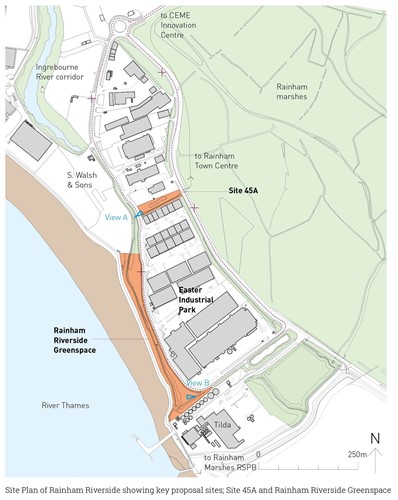to find out more
GREEN
& SUSTAINABLE
Reducing our collective environmental footprint and working towards the principals of the circular economy are under-pinning themes for the London Riverside BID in the fourth term. Government policy, technology and supply chains are changing at an accelerated rate and we see our role as communicating good practice and bringing to our Members latest thinking, resources and support. This will include legal and compliance issues, as well as industry and business intelligence to improve performance.
Forecast investment 2022-2027: £125,000
(including external grants)
Investment to date
The BID's activities are primarily around two areas:
- identifying support and funding to help Memmbers achieve their sustainability goals, ensure climate resilience and exploit market opportunities;
- responsible stewardship of the natural environment that surrounds us.
During the third term we secured in the region of £500,000 of Good Growth Funding to introduce several improvements to amenities and the physical environment, including greening of the gateway roundabouts and a public amenity at the southern end of Ferry Lane to provide a usable outdoor space for staff to take breaks and enjoy nature.
The plot of land adjacent to the River Thames, will be transformed for public use, with community seating and better management of the land to protect the natural habitats and the rich mix of flora and fauna.
It will be available for everyone to enjoy, including walkers along the Thames Path, visitors to the RSPB Rainham Marshes and local communities.
Designs will respect the wildlife already abundant in the area and encourage endangered local species such as the Shrill Carder Bee

Additional priorities this term
Implement a tree planting programme to increase tree canopy cover where possible, which provides widespread environmental benefits;
Identify and bid for funding streams to finance further green and clean projects in the BID area, including EV charging and retrofitting of buildings;
Collaborate with Havering Council, the GLA and relevant stakeholders to support businesses in their efforts to reduce their carbon footprint, convert to cleaner fuels and bring new products to market;
Identify and introduce business support programmes that help prepare business owners to make appropriate sustainable business decisions and investments. These will include in areas such as:
- reducing energy consupltion and switching to greener fuels
- Technology and automation
- Data management
- waste management and recycling
- Sustainable product and service design
- Meeting future compliance and legal requirements



